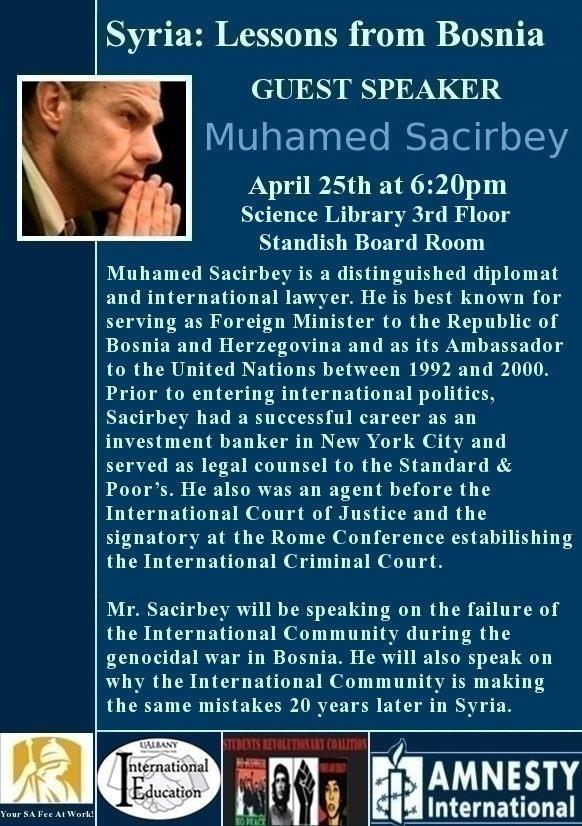Patriot or nationalist, is the distinction lost to some? Nationalism is usurping the patriot's mantle. It is not just soccer hooligans claiming cheap seats all to themselves while chanting whatever hate message complements the drunkard. The U.S. is also far from immune. The authentic message of the American Revolution which proclaimed the equality of all persons is too frequently replaced with the chants proclaiming the U.S. superior to all. Islamic, Christian, Jewish, Buddhist, Hindu identity has become an accessory to the new nationalism allowing us to claim exclusivity to God's blessing in the killing of those who we deem inadequate in their theology or piety.
Patriot and Global Citizen
There is though a ray emerging into this chauvinistic darkness. Global citizen consciousness is on the ascent particularly among the new generation, and most critically it is not seen as inconsistent but rather complementary to genuine patriotism. As traditional media and now social media makes it ever more difficult to ignore the humanity of those that labor in sweatshops to produce our clothes or of victims of human rights abuses (frequently committed purportedly in protection of our security), we see fellow citizens beyond those who just share loyalty to the same flag.
Force for Global Good
The U.S. Navy now seeks new recruits with the slogan of "A Global Force for Good." Perhaps it would be a more inclusive if the message were slightly transformed: "A Force for Global Good." Nonetheless, the appeal is to a young American aware of his country's impact on the globe and beyond traditional isolationism. The strategic rationale is similar for almost all global powers seeking to play a broader role, (we still have to see how Beijing defines its growing military, political as well as economic might especially in view of its rising territorial disputes with neighbors.) Beyond the 19th Century nationalism/imperialism, a global footprint must now be rationalized by something other than mere self-interest. This does not diminish the benefit of initiative to the nation state, but complementarity with presumably broader global interests must be also incorporated.

Rule of Law as Foundation
Intervention has been rationalized via the magic phrase of "threat to international peace and security" that has been historically at the core of United Nations legally sanctioned/mandated action. Over the last two decades, since the genocides of Bosnia and Rwanda, the foundation for humanitarian intervention has evolved to include "R2P" (Responsibility to Protect) and referring "grave violations of international humanitarian law," (war crimes and crimes against humanity), to international criminal tribunals as the ICTY and now the ICC (International Criminal Court). However, the evolution is well beyond institutions and legal norms. Perhaps the most critical developments are in the consciousness of global citizens.
This last month I was invited to lecture at Albany University ostensibly on the lessons to be learned from Bosnia for the current Syria conflict and the international response, or more accurately lack thereof. (See Amnesty International Albany Facebook group) From Bosnia and Syria to America
However, the audience extended well beyond those who had a direct link to either region. Students, faculty, and guests were a cross-section of new and old America most interested in the broader implications or simply if they or their government could do more to bring about peace or at least help fellow global citizens suffering the deprivation of war. The physical, ethnic, religious, cultural or otherwise perceived distance between Syrians, Bosnians, and Americans appeared less of a consideration as compared to the multiple shared values and aspirations. (See: "Is UN Failing Syria & the Rule of Law - Mimicking Bosnia?")
Social Media and Neighborliness The motives though are not purely altruistic. The globe is ever more interconnected where everything from economic prosperity to medical advancements to environmental health to peace or conflict may be shared for good or bad across borders and oceans. Perhaps it was the consequence of the social media revolution where good neighborliness has again been enlarged and enhanced, but beyond empathy there is also the notion of fair play. The "Golden Rule" increasingly embraces the notion that all global citizens are entitled to certain fundamental rights, from the right to food and security to the rule of law. (See: "Re-tweeted by the UN Secretary General? Educating the New Citizen Diplomat")
"All Men (Women) are Created..."
As many of the above rights are also at the foundation of the American Declaration of Independence and the U.S. Bill of Rights, choosing between loyalty to country and consideration for fellow global citizens has all along been a false choice. Indeed, a global perspective of shared rights and obligations may frequently also be the most efficient and functional strategy rather than merely utopian. The United Nations and its related institutions are still far from constituting a "world government," and perhaps this is not a preferable eventuality. After all, sovereignty and nation states are both a psychological and democratic functional foundation for governance. Nonetheless, there is a discernible wave particularly among the younger and more educated to see fellow citizens in a global context for both altruistic and mutually beneficial rationale. Nationalism may be the still persistent impediment to a better world, but is global citizenship not only consistent with but the rising new patriotism?
@MuhamedSacirbey
